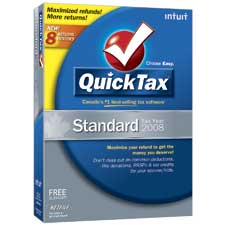
I'm heading into my first job interview at a law firm tomorrow morning, and then having my most important job interview at my favourite firm in the afternoon. You can rest assured that I have spent the day researching and preparing for these two interviews. I thought I'd share some of the most salient features and points I've picked up throughout my preparatory endeavours. It is for this reason that I call this article "Law Firm Interview Do's and Don't's".
Before the Interview, Do...1. Shower, wear deodorant and pop a breath mint before hand. This cannot be stressed enough. If you radiate body or breath odor, the interviewer(s) will likely not be able to focus on much else.
2. Practice your "firm" handshake. Firm as in strong, not firm as in "law firm". Limp handshakes are not only physically disappointing, but some firm recruiters actually believe that they are an indication of the type of personality (strong or weak) that a candidate brings to the firm.
3. Pump yourself up. Remember that the very fact that you got the interview indicates that the firm believes you to have the intellectual capability to do their work, now they just want to see that (1) you can persuade them of this in person, and that (2) you are as sociable/socially capable as you are attractive on paper.
4. Pack emergency supplies: toothbrush and toothpaste, mints, pantyhose, a pair of "outdoor shoes" if it's winter, some cash (for parking, food etc.), tissues and hand-sanitizer (especially if you're sick).
5. Look like a million bucks. I'm not saying spend a tone of cash, but keep in mind that your hands and your face may make or break a deal. Dirty or callous hands and/or fingernails are really off-putting to a potential employer, so make sure your nails are trimmed and filed, your hands are moisturized, not scaly, and make sure your face is groomed and clean.
During the Interview, Do...1. Make eye contact, but don't stare or be creepy about it.
2.
Be a Better Version of Yourself. You've already managed to land the interview, so just smile, be polite, and turn every question which potentially prompts a negative response into a positive (i.e. if the interviewer asks what your weaknesses are, point out some "positive weaknesses" such as perfectionism, overanalytical, and detail oriented to a fault).
3. Smile, and be positive about your experiences. Avoid making negative comments about colleagues, past employers or any experiences you've had. Like a person complaining about an ex-lover, these types of comments will only leave the listener or interviewer in this case, wondering whether they will be the subject of future complaints.
4. Thank your interviewers for meeting with you to discuss your candidacy.
After The Interview, Do...1. Send a thank you note to your interviewers. Thank them for their time and tell them you look forward to hearing from them.
2. Send a thank you email to any articling students, support staff or other individuals who gave you a tour, spent time discussing their own experiences with you, or otherwise made the interview more comfortable. Often, these individuals are consulted about their impressions of potential candidates.
3. Keep a journal of your interviewing experiences to help you prepare for future interviews. Think of it as your own personal resource manual. Possible categories to include might be: "jokes or comments that received positive feedback", "problems to avoid next time", "questions that were asked that caught you off-guard", "what people were wearing around the law firm", "qualities or achievements that the firm mentioned or was impressed with".
Don't!1. Self-deprecate. DO NOT minimize your experiences or achievements in an effort to appear modest. You will only end up appearing to lack confidence in your own abilities.
2. Interrupt. Resist interrupting your interviewers at all costs. You will appear impatient and/or nervous.
3. Fill the Silence with filler words. Umm, like "ummm" and "uhh" and "like". You're not 14 anymore, and it's no longer cute.
4. Wear open-toe shoes if you're a woman, or anything but dress-shoes if you're a man. I know some of you will think this goes without saying, but it needs to be emphasized.
5. Memorize your answers to interview questions verbatim. Instead opt for a more natural approach to answering interview questions, say, by memorize your
speaking points (i.e. Why do you want to work at this firm? Memorize "location, diverse practice areas, friendly colleagues, reputation"). You can work out the exact wording at the interview, which will translate into a less robotic, less rehearsed answer.
Are there important preparation and presentation tips I've missed? If so, drop me a line and let me know! :)














